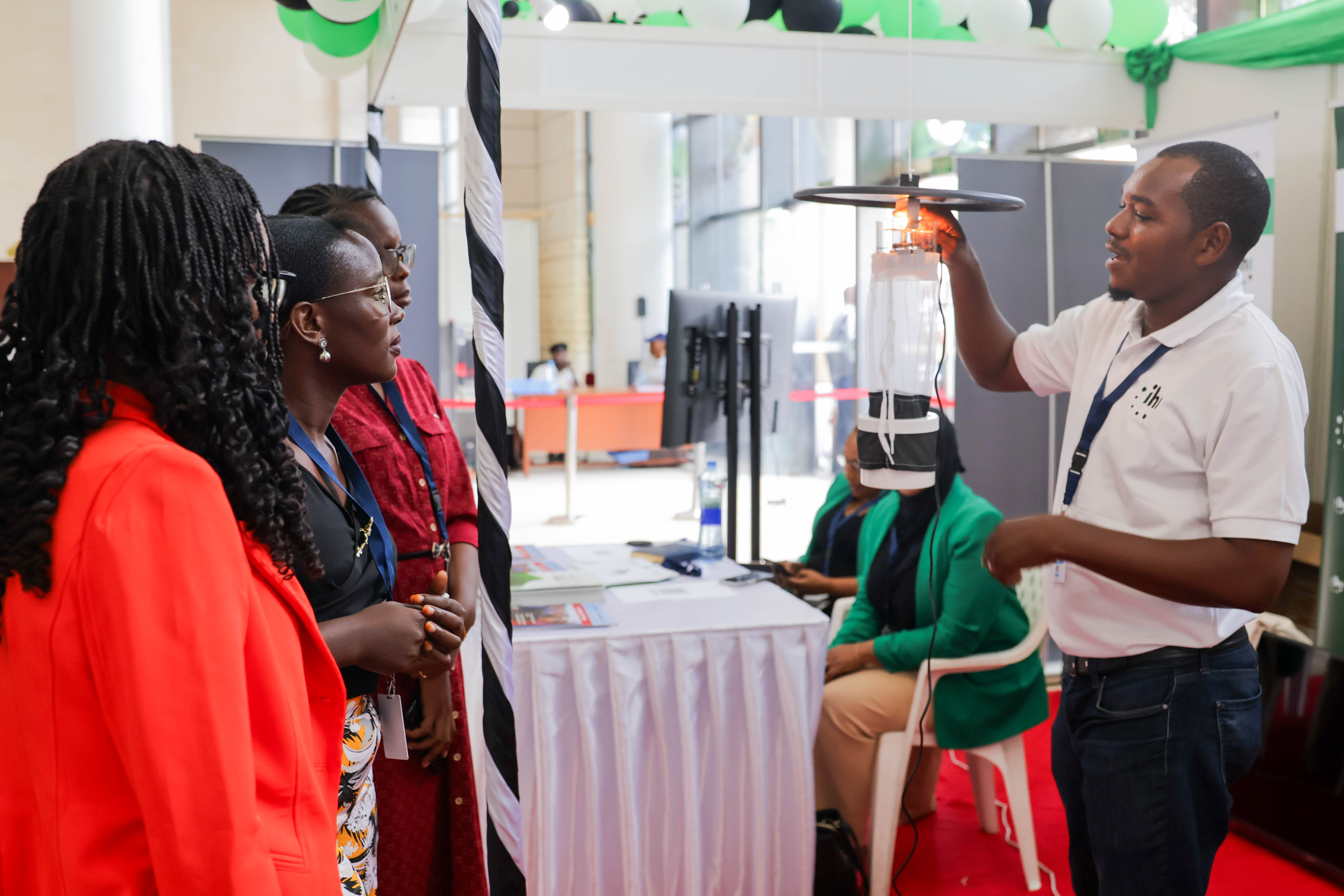
FORUM: Ifakara at NIMR Conference

Ifakara Health Institute took part in this year’s Annual Joint Scientific Conference (AJSC) organized by the National Institute for Medical Research (NIMR). The event took place at the Julius Nyerere International Convention Centre (JNICC) in Dar es Salaam from May 14th to 16th, 2024.
The theme for the 32nd edition was “Advancing Research and Development for Improving Health Services.” Researchers, academics, and practitioners will present their latest findings. Ifakara had a booth to showcase its work.
Since 1982, NIMR has been hosting AJSC to share health research findings in Tanzania. It’s a platform for local and international parties to discuss and improve health practices and policies.
Innovations in mosquito control
Augustino Mmbaga, a research scientist at Ifakara, discussed the use of autodissemination (ATD) meaning rather than widespread spraying, this approach utilizes the mosquitoes themselves to disseminate a specific insecticide at their breeding sites hindering adult mosquito emergence.
Mmbaga cited promising evidence and stressed the need for scalable devices, optimized formulations, and community acceptance for its success.
Ndanda legislator visits Ifakara booth
The Member of Parliament for Ndanda Cecil Mwambe visited the Ifakara booth, where research scientist Alex Limwagu briefed him on mosquito trap devices, and Sarah Mswata, the lab manager, introduced him to the various sections at Ifakara's research labs in Bagamoyo.
Crucial insights for future vaccine designs
During a symposium on challenges and opportunities towards malaria elimination in Tanzania by 2030, Dr. Anneth-Mwasi Tumbo, an immunologist from Ifakara, presented insightful research on how asymptomatic viral infections influence immune responses to malaria vaccines.
The Immunology team at ifakara along with collaborators found on average, an adult African has ongoing asymptomatic (without symptoms) viral infections at the time of malaria vaccination. These hidden viruses seem to affect how well the vaccines work. Dr. Tumbo suggested that when we plan malaria vaccine implementation in areas with high malaria burden, we need to also consider the role played by co-infections including asymptomatic viral infections. This information will also be useful for designing next generation malaria vaccines.
Examining HIV Care
Aneth Kalinjuma, a research scientist at Ifakara, delivered a presentation on behalf of her team detailing a study conducted at the Chronic Diseases Clinic of Ifakara (CDCI) in Ifakara, Tanzania. The study investigated HIV care using two distinct methodologies: cross-sectional analysis (snapshot view of a particular point in time) and longitudinal analysis (over time).
They found that while many patients seemed to have their HIV under control in the snapshot view, over time, many came in and out of care. This suggests the necessity of using both approaches to obtain a thorough understanding of the complexities of HIV care. Furthermore, Kalinjuma also emphasized the need for quick care after diagnosis to prevent issues such as HIV transmission and treatment resistance.
Former Ifakara review board chair pays a visit
Professor Esther Mwaikambo, who until recently served as the Chairperson of Ifakara's Institutional Review Board (IRB) paid a visit to the Institute’s booth. She was warmly welcomed by Ifakara’s Bagamoyo lab manager, Sarah Mswata, and immunologist Dr. Anneth-Mwasi Tumbo, who briefed her on the latest developments in research at the institute.
Larviciding as a complementary malaria control method
Gloria Shirima, a modeler from Ifakara Health Institute, discussed the potential of larviciding as an additional tool in malaria control. Her study, conducted in Tanzania's Rufiji district, used a mathematical model to simulate larviciding alongside bed net coverage.
The results were promising, showing significant reductions in malaria transmission and mosquito populations. This suggests larviciding could be vital, especially in areas facing challenges like insecticide resistance.
Understanding mosquito behavior for better control
Dorin Mmasi presented a study on anopheles funestus mosquitoes, focusing on factors like treatment, time of day, and their impact on malaria transmission. Through laboratory experiments, Mmasi aims to improve our understanding of mosquito biology to enhance transmission-blocking interventions. This research could lead to better methods for evaluating malaria control strategies.
Combating malaria vector resistance
Anitha Mutashobya presented a study aimed to evaluate new larvicides to reduce costs and improve malaria control. This is in response to the rising resistance of malaria-carrying mosquitoes to insecticides, prompting the WHO to recommend larviciding as an additional control method.
However, implementing larviciding is costly due to frequent treatments. Mutashobya and team’s research aims to find longer-lasting solutions to enhance overall effectiveness in combating malaria.
